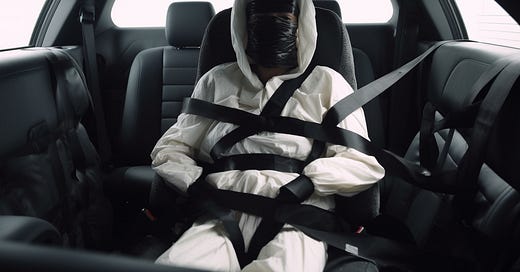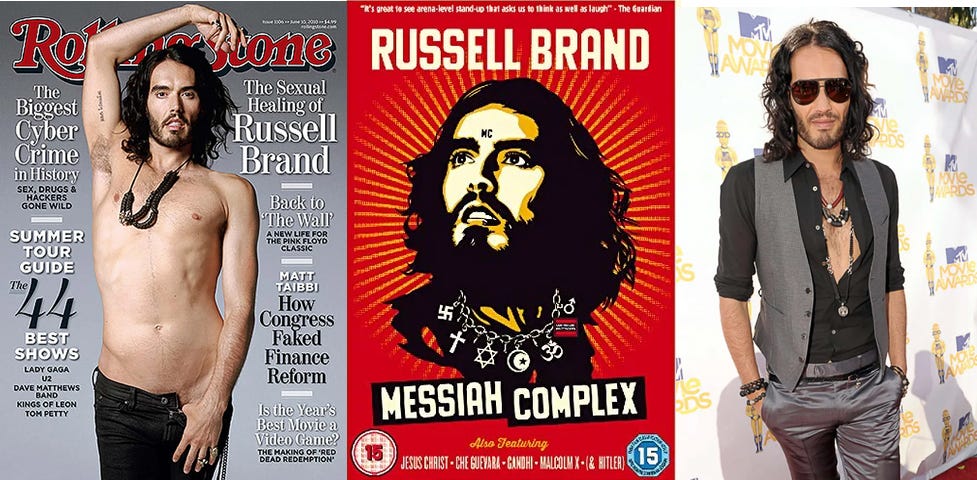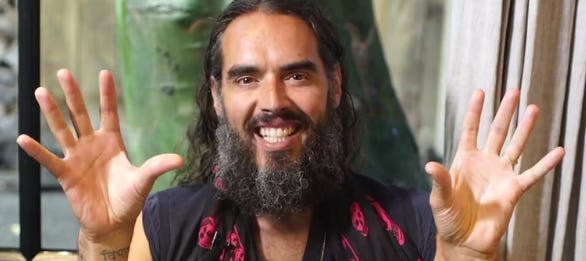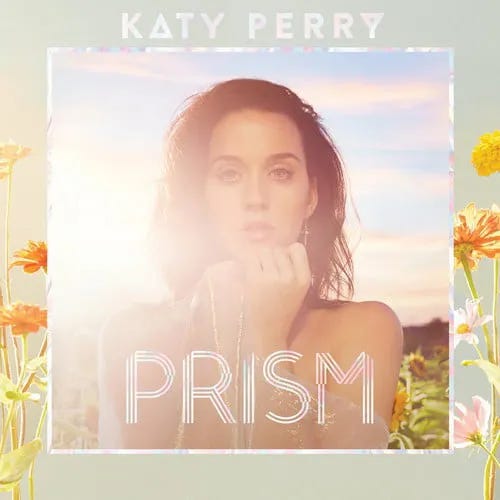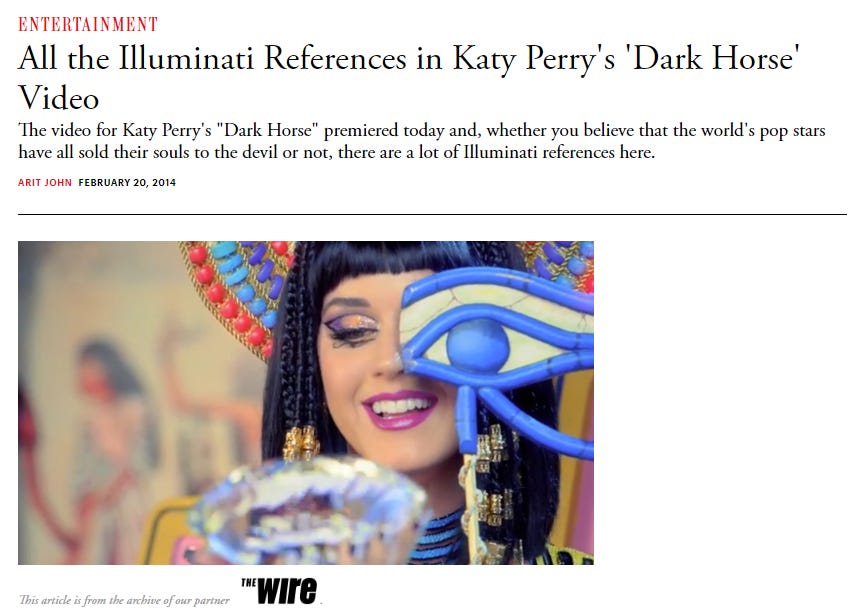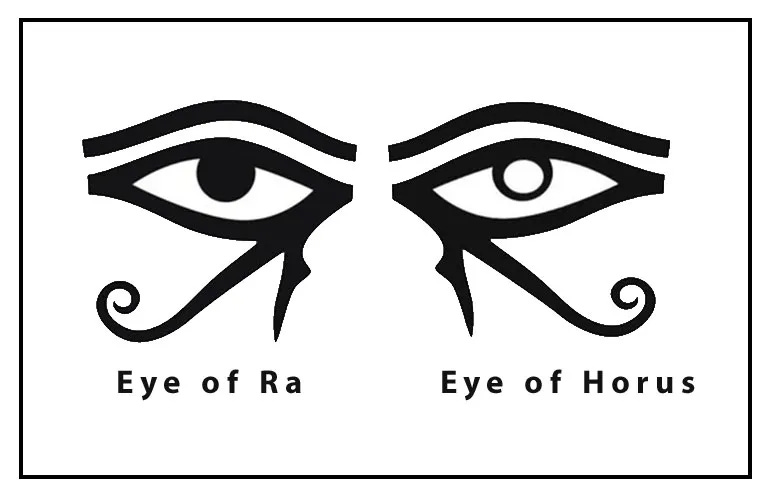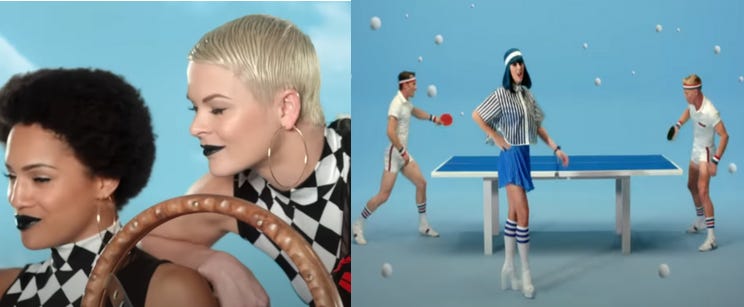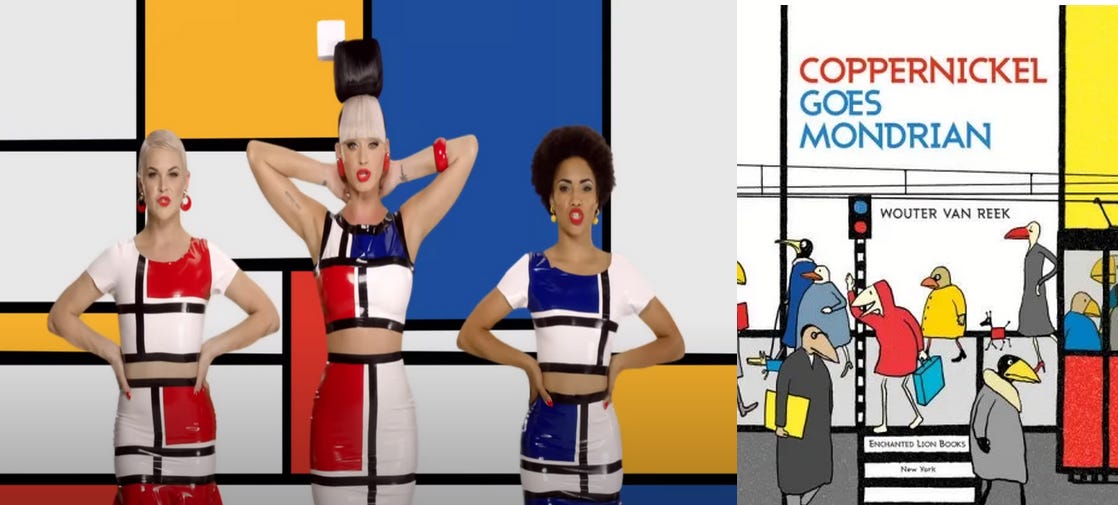Russell Brand, Part 2: The Medium is the Message
Governance by Aggressive Nonsensical Guruism
We continue our story from Part 1.
As you move forward into Part 2, please take seriously the following:
Some of the content that we discuss is emotionally challenging. Some individuals may find the material distressing.
The overall goal is to limit the total stress we face. We do this by exercising best judgment. We exercise best judgment when we have the greatest set of facts, and we have practiced putting those facts together in cogent models, examining an array of hypotheses along the way.
Before we get started, I'd like to encourage readers to check out a lovely song I just discovered. Something pleasant as a shield.
The Medium is the Message?
"When I was asked to edit an issue of the New Statesman I said yes because it was a beautiful woman asking me. I chose the subject of revolution because the New Statesman is a political magazine and imagining the overthrow of the current political system is the only way I can be enthused about politics." -Russell Brand
If you didn't buckle up the first time…
This section is not about whether or not Russell Brand committed sexual assault or raped anyone. This is about the medium himself.
Obviously, I can't tell you whether or why to care about Russell Brand. But I can cobble together a timeline of the open source information about him, if you trust that sort of thing. And that might just be entertaining. To my surprise, it was for me, and in ways I certainly wasn't expecting. What I learned fit into a lot of the things I believe are most important to understand in these crazy times. Now that I'm done, I feel like I can't possibly know the real Russell Brand. But I can tell you a great deal about his public image.
I can't possibly know the real Russell Brand. But I can tell you a great deal about his public image.
And that medium is the message.
Throughout the plandemonium, I largely ignored Russell Brand because I have time for just a few video streams that I watch, usually while I work. When it comes to most important and meaningful topics, I find more fresh meat by reading books, papers, and documents than from watching podcasters with well-honed neurolinguistic programming and/or hypnotism skills. And the so-called sensemakers are usually several months to several years behind people who read and talk with other people who read on the most fundamentally important topics of the day—either that or they're reading from a script. But I do consume enough of the hypnotic sense-maker content to get a sense of what the public is being fed, both from the mainstream media (MSM) and the Medical Freedom Movement (MFM), including much of the [more popular] alt media.
With few exceptions, when the topics get deep, you should set yourself to the task in order to best understand them—and certainly before you allow yourself to believe that you understand them. The less personally we experience anything, the more skeptical we should be about interpretations of those experiences. Sometimes we need to build the scaffolding of ideas—models—in order to even formulate good hypotheses.
It's hard to quickly piece together the early life of some distant personality, but we can take stock of what appears to be the agreed upon set of facts.
Russell's childhood sounds like a chaotic one. His father, Ronald, left the family when he was six months old, leaving Russell's mother, Barbara, to raise him alone. A few years later Barbara was diagnosed with cancer for the first of several times. Russell understandably speaks as if this scarred him. He had to live with relatives for a while during his early teenage years. He developed an eating disorder and a drug addiction around this time, but also started into theater.
Russell did sometimes visit his father whose sense of parenting included giving Russell porn to view while he banged some woman in the other room. Ronald took Russell on a trip to Southeast Asia and purchased the time of a teenage prostitute for his sixteen-year-old son. This is just the stuff from Wikipedia links, which we might assume covers Brand's life only superficially. But it's already enough to pity a soul.
There seem to be missing year's in Brand's publicly told story, so we might assume that after being kicked out of the private school he attended as a teenager that he was abducted by aliens and experimented on?
Somewhere along the way, Russell began to build his career as an entertainer. But his drug addiction got him into trouble. After getting a break working as a presenter with MTV, he apparently got in trouble and fired for bringing his drug dealer to work, and repeatedly showing up to work dressed like Osama bin Laden after 9/11. He writes about how addiction generally controlled him. He would sneak about and hide his activities,
Amanda didn't like me using heroin. She knew I'd been doing it in London, but I'd told her I'd given up, so I had to hide my drug-taking from her. On this occasion, though, there had been no opportunity for me to smoke it in secret. When I said I thought I might go for a walk, Amanda was suspicious and insisted on coming with me. At that point I began to get anxious. I could feel myself heating up and breaking out in a sweat, and then my legs started kicking and jumping. That's the worst symptom of heroin withdrawal; I can tolerate the nausea and the sweating, but I hate it when your legs go all kicky. That's where the phrase "kicking the habit" comes from.
Amanda eventually fell asleep, and I had to go into the bathroom and quietly unfold all the things I needed, which I'd managed to secrete about the place. I got the foil out, sat on the toilet, lit the lighter under the foil, and the tiny lump of heroin started to liquefy and bubble. Then it begins to run along the foil, and as it does so a vapour escapes, and you have to hover above it, sucking it up with a tube.
In 2002, Russell found himself sacked from a radio program for reading pornographic material over the airwaves. Still, Russell's star rose in the BBC-o-sphere. This led him into the orbit of now-infamous pedophile Jimmy Savile. That's a topic we will come back to later.
Brand's star had begun to shine, and found himself able to work large comedy tours, and star in a few films. In 2008, Brand's brand was not yet imprinted on the American conscience, but/so MTV invited him to host the Video Music Awards, and advertise his sexual alpha image.
Also in 2008, in an episode that quickly became known as "Sachsgate" that involved Russell Brand making edgy prank calls, Brand left messages on the answering machine of elderly actor Andrew Sachs letting him know that he'd had sex with his granddaughter, Georgina Baillie. From Mirror,
In the pre-recorded broadcast, Ross was heard goading Fawlty Towers legend Sachs over voicemail, telling the actor that Brand had slept with his granddaughter Georgina: "He f***** your granddaughter." Brand clarified: "But it was consensual and she wasn't menstrual, it was consensual lovely sex. It was full of respect I sent her a text, I've asked her to marry me, Andrew Sachs."
Later in the show, Ross said if listeners were offended, they were "crazy". The incident sparked media storm as thousands of listeners complained to the BBC about the incident which became known as Sachsgate. Georgina has since said the entire ordeal "ripped my family apart".
I'll be honest—I loved making prank calls as a kid. I'd get together with two friends of mine and write scripts. We would take turns calling people and reading fluidly from a script that we wrote that was basically a cold call commercial for a nonexistent product. It was a "decorative doorbell" that would play an elegant array of songs by the masters such as Mozart, Bach, Brahms, and Knights in Satan's Service. At the end of the rapid-fire script, we would let the listener know that 50% of the proceeds of their sale were going to save the pin-striped wooly buffalo. The fun was in seeing how many people got too tangled in cognitive knots to recognize the absurdity of it all. Once in a while, somebody would offer us money for the product, which was an interesting lesson that we did not have to work in call centers to discover.
We were thirteen—playing games and testing boundaries. We did not SWAT anyone, bait anyone into hurting themselves, or sportfuck (or whatever you want to call it when you claim to shag a thousand a year) women with public personas so that we could reveal it simultaneously to their humiliated families and a public audience large enough that it might as well be the whole of society. I'm not saying I know exactly where "the line" is between playful mischief and hateful abuse, but if you stand on that line and look far into the distance on a clear day, you can just barely make out Sachsgate.
Brand later apologized about the incident.
There are some times when saying sorry is absolutely necessary, but does nothing to fix great human loss, sorrow, and disappointment. For Russell Brand, those moments somehow still build his image as the sexual alpha. That image formed and took shape over many years, and it's deadly sharp.
I don't really know what to make of that. I just…try to document everything that might be important for understanding the bigger picture, so I filed this in the "celeb > horse it in me" folder.
Skipping past most of the rest of the debauchery that Brand himself talks often enough about himself (often enough to be fairly certain that he wants you to think about it when you think about him), let's focus in on Brand's "love life"--because there is a lot more to digest there. It seems to begin in his mid-30s, after a few thousand tryouts.
The obvious starting point is Brand's first marriage. Russell Brand and Katy Perry got hitched in late 2010. Though Katy was raised Christian, they were married in a traditional Hindu ceremony. The relationship lasted barely over a year with Brand ending it in a New Year's Eve text to Katy, and apparently never spoke to her since. If you trust what they say about the marriage to the tabloids, you can read more about it there, and then choose how much to believe any of it.
Now, let's focus on Katy Perry. Katy's music contains an array of interesting elements that get the conspiracy theorists really worked up. Her fourth studio album was named Prism, but is often marketed in all capital letters, similar to the surveillance program revealed by Edward Snowden in June 2013. While Katy's album was released in October 2013, the first single "Roar" was released in August of that year. She began working on the album in late 2012. That's a little weird, right?
The most popular track on Katy's PRISM is called "Dark Horse". Somehow typing that sentence felt like describing some weird porn, but we haven't gotten there, yet.
Understand that this is not going to be some superficial rant about illuminati symbols in pop culture. The last thing we need is more pop conspiracy theory.
On the same day the Dark Horse video aired, the British-produced The Atlantic was ready with an article explaining all the occult references in the video, just in case it wasn't abundantly obvious what was being blasted at millions of young viewers, ye highly-educated transatlantic Mandarins. Perhaps they were posting the ante for The Economist? Never mind…
Are you not entertained?
The term "dark horse" itself comes from former British Prime Minister Benjamin Disraeli's 1831 novel "The Young Duke". File that away because we'll revisit that bit of historical trivia later in the article.
GQ Magazine made a timeline of occult imagery in pop music videos. Ordinarily, I'd yawn and go back to something more important, but it does strike me that nearly all of the timeline takes place since the mortgage bond market blew up, which I felt even before it happened was the moment the dollar would begin to die—World War E.
It may be worth stopping at this point to hear what Katy has to say about all this.
Sweet mother of Osiris!
Okay, okay, she's a celebrity. She gets paid for being weird and drawing in enormous amounts of attention to her "prism" from suburban kids who can afford a concert ticket, and girls who sometimes go home and cut themselves. That doesn't make her an actual Satanist, right?
Gospel singer. The medium is the message.
Before moving to another, more disturbing video, I do want to make a quick point about the symbolism, which I think some people may have wrong (or maybe I do). At different times during the above video, Katy covers each of her left and her right eyes. Either way, this could be homage to the all-seeing Eye of Providence. Or, she could be giving both the Eye of Ra and the Eye of Horus screen time. Maybe the message is that the watcher is being watched.
What does this mean? I don't know. Dammit Jim, I'm a Statistician, not an Eyecheologist! Maybe Russell knows.
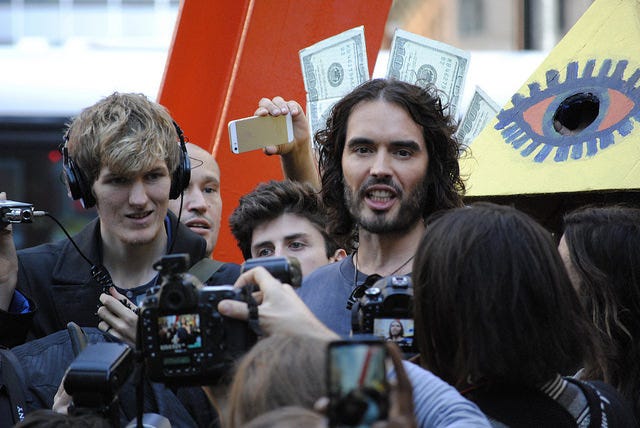
There is a second video from the Prism album that makes me question why I ever started the climb out of Plato's cave.
I can't confirm this, but I hear this video won the VMA for Best Promotion of Psychiatric Therapy in a Video.
So…I did not mean to go there. I had no idea I was going there. I couldn't have picked Katy Perry out of a lineup or identified one of her songs as hers before now (though I'd heard a few in passing). But here we are, and some of you probably know what's coming. There is a lot to unpack here, and if you're squeamish, you may want to scroll down a few pages and skip the ice cream video. Seriously, you may not want to watch that. I wish that I hadn't.
There is plenty of imagery in the video that is…what's the right way to put this…basically sexual. Tacos, watermelons, thots, whatever. And then there's…the other stuff…
The episode now known as Pizzagate surfaced in 2016. Katy Perry's This is How We Do video was released on July 31, 2014, and contains a lot of the themes associated with the Pizzagate controversy.
Pizza ("Food of the Gods" referencing children to pedophiles)
Ping pong (Multiplayer sex act; and cosmic/comet ping pong?)
Handkerchief code (Podesta email reference; preference code)
Nonstandard Art (Money laundering? Podesta art collection?)
Ice Cream?
Pee Wee Herman?
Some of this you can research on your own, if you haven't already. I have no interest in trying to dissect the whole pizzagate story right now, or defend positions about it. What's primarily interesting to me (for the moment) is that these references to an elite world of sick abuse (whether real or fictional) would appear prior to the outbreak of that story. I don't know what that means, but…
I would not have known what to make of this, but I came across a reference to Piet Mondrian whose art took a sharp turn (pun intended) in the middle of his career into what became his trademark Modernist style that lent itself to a parallel movement in architecture. A suspicious mind may wonder if there is signaling involved.
There may also be a relationship to international money laundering since elite art collections are routinely traded outside of any regulatory surveillance in hundreds of freeports dotted around the world. My finance mind has sometimes wondered if some art thefts are pre-arranged rotations of art in and out of the dark, illicit markets (which would include human trafficking) in order to connect those dark markets back to open markets. This would act as a normalization mechanism for marking de facto securitized art to market. If this doesn't make sense, ask yourself who decides why so much crap-to-mediocre art is collectively worth hundreds of billions of dollars, and is kept in freeport vaults around the world. It's an organized, parallel economy that birds fly in and out of. It's a big club, and you ain't in it.
Aside from money laundering, a healthy, high-priced art market buoys a simple system for bribery that is both obvious, and legally incoherent enough to make it difficult to prosecute.
That said, I have several personal art pieces that I would be willing to sell to RTE subscribers for the very reasonable price of $50,000. Viewable upon purchase. Buyers may schedule a tour of my office and meet the President of my company.

